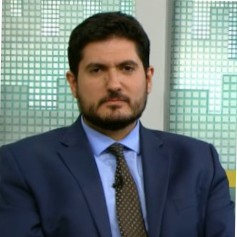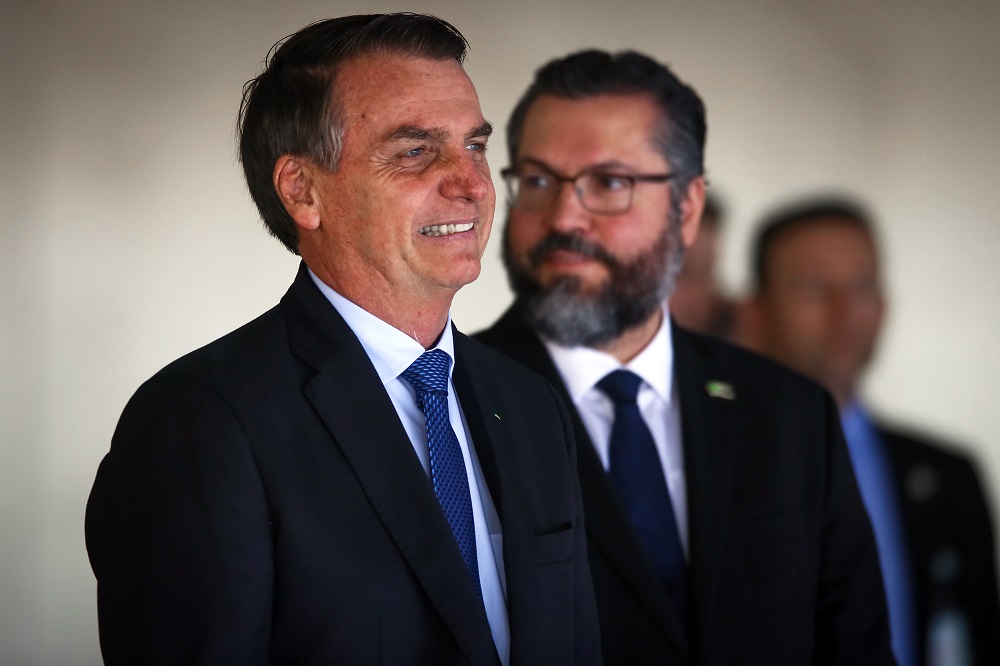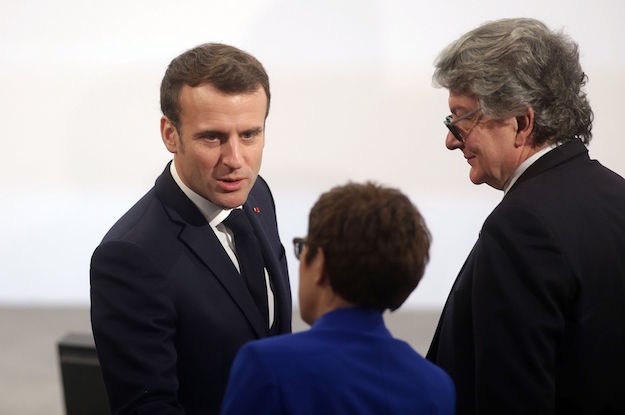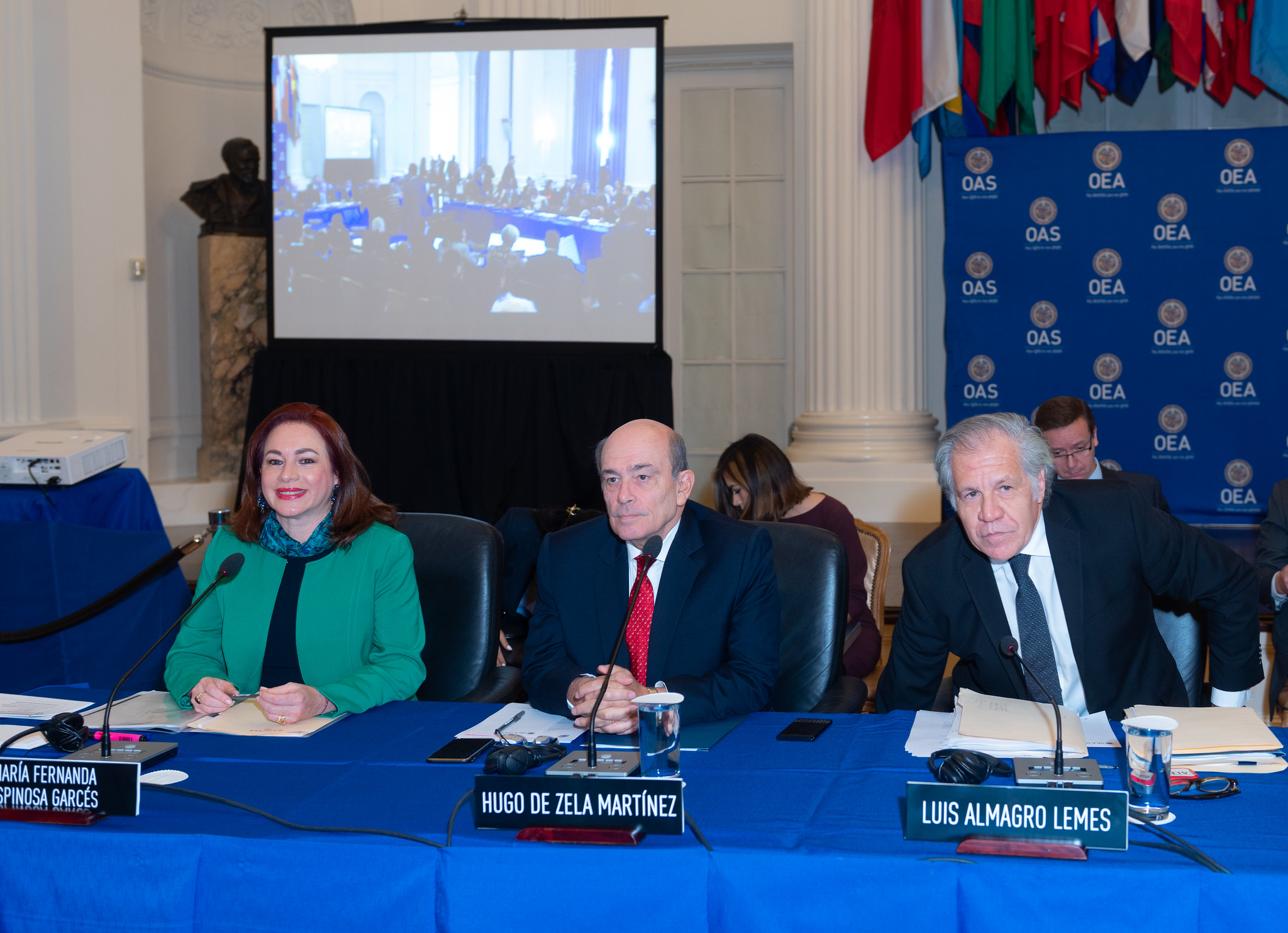Controversy has been a frequent feature of foreign policy during Jair Bolsonaro’s first year in office. But while the Brazilian president’s nationalist and militaristic rhetoric might make him look like a character from a Latin American history textbook, the driving force behind Bolsonaro’s worldview isn’t always what it appears. Yes, he is a retired army captain and yes, there are many generals in his cabinet. But more than a military man, Bolsonaro is a culture warrior – and that is what mostly guides his approach to diplomacy.
Alongside education, foreign policy has been one of the key arenas of the culture war currently being waged by Bolsonaro’s base. For the ideologues who support the president – many of them also followers of his Virginia-based guru Olavo de Carvalho – all politics is “metapolitics,” as they call the fight to transform society through the spread of ultraconservative ideas and values. Brazil under Bolsonaro is engaged in a crusade to make God, the nation and “traditional” family the defining elements of the domestic and international spheres.
In practice, this means declaring war on so-called globalism. From the United Nations to Greenpeace, from Leonardo DiCaprio to Greta Thunberg, Bolsonaro’s Brazil wishes to break off with any institution, ideology or value that might threaten what is perceived as the true conservative nature of the Brazilian people. The three most important figures in the Brazilian foreign policy apparatus share this belief: the president’s third son, Congressman Eduardo Bolsonaro; international adviser to the president’s office Filipe Martins; and Foreign Minister Ernesto Araújo.
It is this “anti-globalist troika” that has been most responsible for the thorough departure from Brazil’s diplomatic tradition in Bolsonaro’s first year.
Hello, Orbán
As with any far-right ideologue, Bolsonaro’s first step was to divide the world between friends and foes.
In its first few months in office, his administration clearly attempted to form a brotherhood of conservative leaders, beginning with Donald Trump, with whom Bolsonaro expected to build a long-lasting relationship. In Washington, Bolsonaro’s first destination abroad after a brief visit to Davos, the Brazilian president was seduced by Trump’s promises of opening U.S. markets to Brazilian beef and support for Brazil’s bid to join the OECD. In exchange, Bolsonaro moved closer to the U.S. vis-à-vis China and fully aligned behind Washington against Iran and Venezuela, mostly at the expense of Brazil’s own interests.
More recently, following the U.S. operation that killed Iranian General Qassim Suleimani in Iraq, Brazil put out a statement in “support of the fight against terrorism” and promising “not to remain indifferent to this threat, including in South America.” Brazil is also scheduled to host a U.S.-sponsored summit focused on Iran in February.
The Brazilian president has also courted other populist leaders across the globe. During his campaign, Bolsonaro promised to transfer the Brazilian embassy in Israel to Jerusalem – a critical topic for Evangelicals, one of the most powerful constituencies in his base. Israel’s Prime Minister Benjamin Netanyahu thus became a top priority. Frustration ensued as Bolsonaro backtracked on the embassy change, choosing instead to open a trade office in the Holy City. To this day, however, the administration still hints at the possibility of mimicking Trump’s decision to move the U.S. embassy, in violation of international law.
Hungary’s Viktor Orbán has also become a sort of role model for Bolsonaro. Key government members never hid their admiration for Orbán’s tight control of education and the media, his staunch defense of presumably Christian values, and his rejection of migrants and refugees. “I despise political correctness and I want to learn how you’ve done away with it,” Eduardo Bolsonaro told Orbán in Budapest. Inspired by Hungary, Bolsonaro has withdrawn Brazil from the UN Migration Pact and forced the country into an about-face on human rights issues. The Brazilian foreign ministry has banned the use of terms such as “women’s reproductive rights” or “gender identity” in multilateral negotiations.
Bolsonaro’s next step was to tell the world who Brazil’s foes were. The most obvious choice for an Orbán friend was George Soros and everyone allegedly associated with him: feminists, LGBT rights advocates, environmentalists and human rights activists.
Bolsonaro also publicly attacked French President Emmanuel Macron over his suggestion that the Brazilian government should be held accountable for fires in the Amazon. Bolsonaro’s bullying tactics involved the French president’s wife, Brigitte.
Socialists have also earned their share of Brazil’s foreign policy paranoia. Rather than treating Venezuela’s Nicolás Maduro as what he is – a ruthless authoritarian mostly responsible for his country’s economic and social collapse – Bolsonaro decided to paint him as part of a Cuban-Bolivarian conspiracy articulated by an all-powerful organization called the São Paulo Forum. The forum allegedly gathers drug dealers and communists determined to establish a unified socialist nation in the hemisphere. “That is the Foro: Marxists instrumentalizing drug gangs and vice-versa, backed by forces that try to sink Latin America into totalitarianism,” Araújo recently said in a tweet.
The administration has charged Brazil’s former President Luiz Inácio Lula da Silva with being one of the organization’s masterminds, whose recent plotting includes setting up demonstrations in Chile and Ecuador, rigging elections in Bolivia, paving the way for the Peronist comeback in Argentina, and spilling oil along the Brazilian coastline.
China – Brazil’s largest trading partner – was also targeted by anti-globalists, but thanks to pressure coming from Brazil’s agribusiness and other key sectors, Bolsonaro has been convinced that hostility towards the Chinese could damage exports and potential infrastructure investments. Now, to Trump’s dismay, Brazil is even flirting with Chinese tech giant Huawei to roll out Brazilian 5G infrastructure.
Balancing the ideologues
The case with China shows how Bolsonaro’s anti-globalists sit uncomfortably with the free-market advocates on his economic team. Led by Economy Minister Paulo Guedes, the pro-market elements have been struggling to pass liberalizing reforms and open the economy. Bolsonaro’s love for Trump has been met with U.S. tariffs against Brazilian steel and aluminum and with no real support for Brazil’s bid to become an OECD member. His fascination with Netanyahu has waned as the Israeli prime minister faces his own political setbacks – and amid calls in the Islamic world to boycott Brazil’s halal meat exports if the embassy change takes place.
Not even Bolsonaro’s animosity toward Argentina’s new president, Alberto Fernández, who the Brazilian president slammed as “leftist scum,” could last forever. At first determined not to send any representative to the presidential inauguration of Brazil’s largest regional trade partner, he was later convinced by Guedes and others to change course. Vice President Hamilton Mourão was sent at the last minute to Buenos Aires for Fernández’s inauguration.
One year on, anti-globalists still reign supreme with their ultra-conservative agenda, despite important concessions on China or Argentina. 2020 will be a defining year for Bolsonaro’s foreign policy, especially pending electoral results in Israel and the United States: either Brazil’s culture wars will get an international boost, or Brazil will be forced back to good old pragmatic diplomacy.
—
Casarões is a professor at Getulio Vargas Foundation’s (FGV) Business School and currently a visiting associate at the University of Michigan’s Weiser Center for Emerging Democracies.









